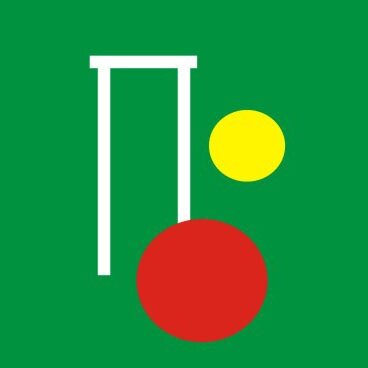The World Croquet Federation has provided an update on the progress of four working groups that are investigating the following initiatives:
Working Group 1: Global Handicap System
Members: Ian Burridge (WAL, WCF MC and chairman), Gareth Denyer (AUS), Jake Inwood (NZL), Johnny Mitchell (USA) and Chris Roberts (ENG)
There is no update for this group because further progress depends on developments within the scope of the Working Group 2 initiative.
Working Group 2: Global Player and Game Database
Members: Phil Cordingley (ENG, chairman), Damon Bidencope (USA), Begoña Elzaburu (ESP), Tim Murphy (AUS), Stephen Mulliner (ENG, GC Ranking Officer), Chris Williams (WAL, AC Ranking Officer)
The Group began work in October 2020 with an email discussion about the purpose and content of a global player and game database. Following this, Phil Cordingley produced draft terms of reference for a formal feasibility study of the project. These were considered in further detailed email discussions.
Cordingley regards the establishment of a global player and game database as a straightforward and feasible IT project. He is currently working on producing a database design (Phase 0) for review and approval by the WCF Management Committee. Implementation could be achieved either by harnessing voluntary IT resources from within the croquet community or by commercial expertise (e.g. from India). Cordingley hopes that Phase 1 (incorporation of the AC and GC rankings) can be achieved by the end of 2021.
Working Group 3: Advantage GC
Members: Cheryl Bromley (USA), Martin Clarke (AUS), Jonathan Lamb (URU), Chris Roberts (WAL), Roberts Stafeckis (LVA, WCF MC and chairman), Roy Tillcock (ENG)
The group has agreed on the design of a new form of handicap GC which is based on a concept designed by Roy Tillcock (ENG). The central principle is that differences in starting scores are used to replace extra strokes as a means of equalizing the chances of victory for players of different abilities. Games continue to require the winner to score 7 points, but starting scores can vary from 0 : 0 (a game between players with the same handicap) to -6 : 6 (where the stronger player has to score 13 points to win compared to the one point required by the weaker player).
Advantage GC was publicly announced to the croquet world in March 2021 with supporting documentation. A formal season-long trial is planned with the Croquet Association’s Southern Federation in 2021. However, the public announcement strongly encourages members, clubs and players all over the world to conduct their own trials and to report back their views and the results of games. The key information sought is (a) whether players liked playing Advantage GC and (b) whether it achieved the aim of giving each player an equal chance of winning.
Working Group 4: online referee training and accreditation
Members: Chris Alvey (ENG), Jim Clement (AUS), Begoña Elzaburu (ESP), Stephen Mulliner (ENG, WCF MC, chairman), Martyn Selman (USA)
The group began by considering possible priorities. It agreed that, in terms of referee training and accreditation, the focus should be on supporting smaller croquet-playing countries that did not have easy access to examining referees. The larger and most established WCF members (e.g. AUS, EGY (for GC), ENG, NZL and USA) have well-developed referee training and examination processes for AC and GC and, although online training material will undoubtedly be useful to aspiring players and referees everywhere, these WCF members and their players should not be regarded as the “target market.” One consequence of focusing on the smaller WCF members and RCOs is that GC referee training will be the priority.
The group was provided with a comprehensive online GC referee course created by Tim King (ENG). This consists of 191 PowerPoint slides. They agreed that it was an effective course but felt it might be more detailed than necessary. It was also suggested that some messages could be conveyed by video clips as well as text in order to cater to learners who preferred the visual or kinaesthetic modes.
The author delivered the course over two days in April but has also envisaged that it could be delivered (or absorbed by a student) over four sessions. One possible structure is to provide a student with a mentor and arrange for the student to study the content over four days, each a week apart from the next. The mentor would be available to answer questions from the student during the interval between courses. The proposed action is to adapt the course into four modules supported by short video clips where appropriate, mainly in relation to Rules 8 to 11.
The Group intends to widen its scope to create short YouTube video clips (preferably less than 3 minutes in duration) to explain the rules on a point that some players, especially newcomers, are known to find difficult to understand. The main examples are, as noted above, in relation to Rules 8 to 11 with Rule 8 (offside balls) and 10 (playing a wrong ball) being the most needed. The immediate action is to draft and agree on scripts for these videos.
For updates on the WCF Working Groups, visit www.worldcroquet.org/wcf-business/development/working-groups/

